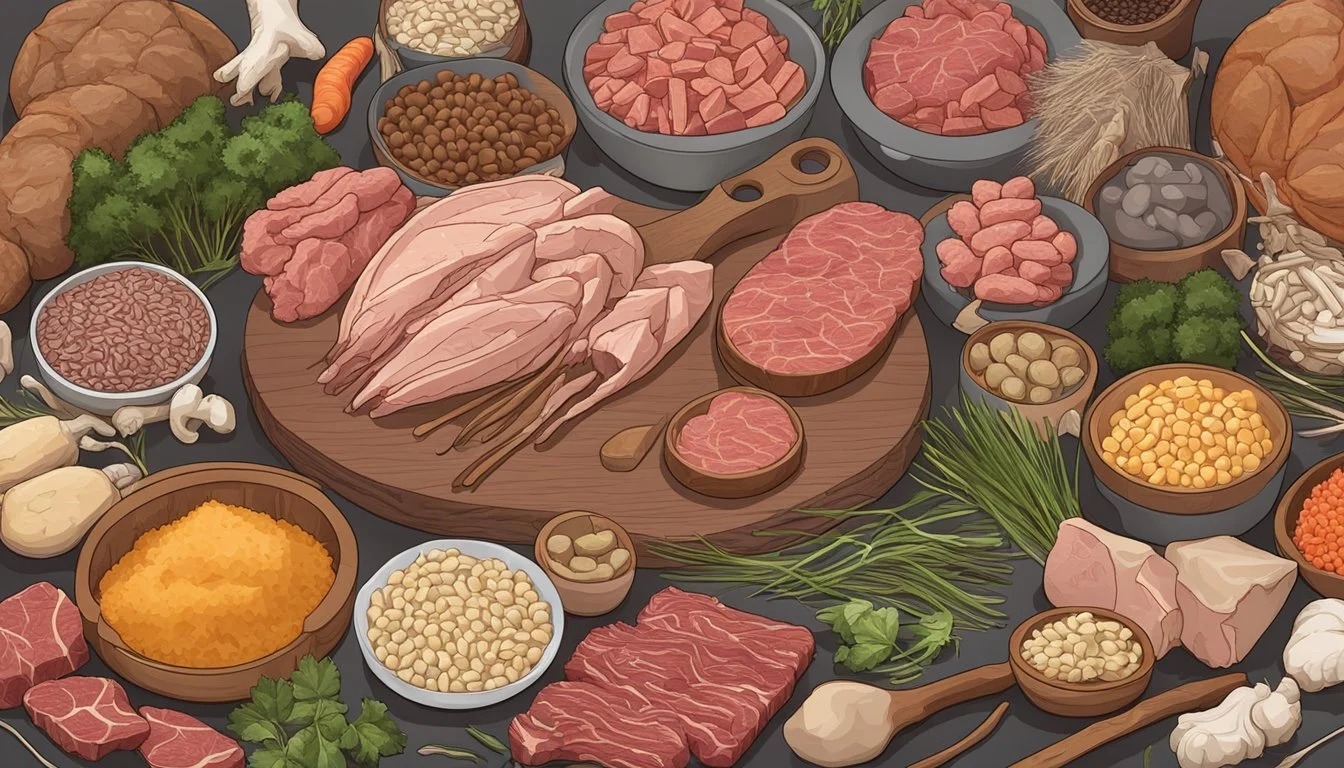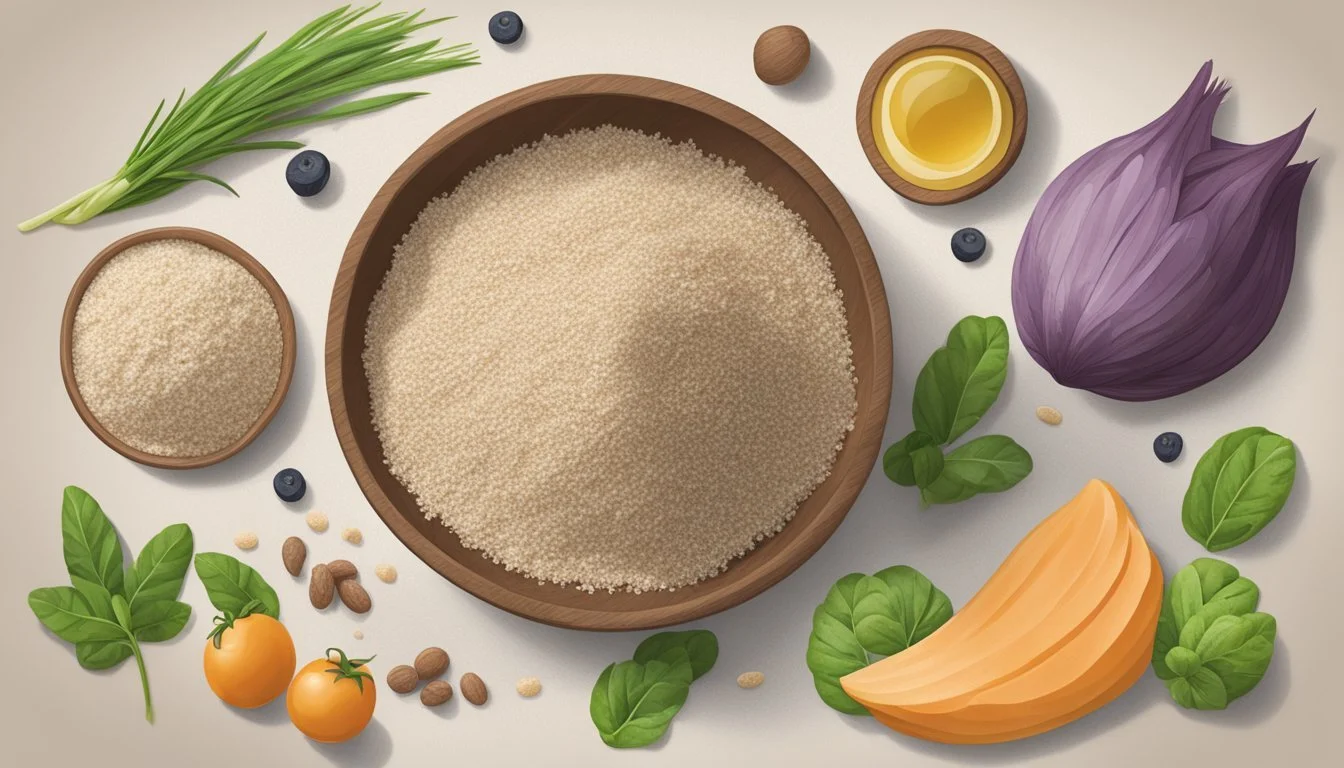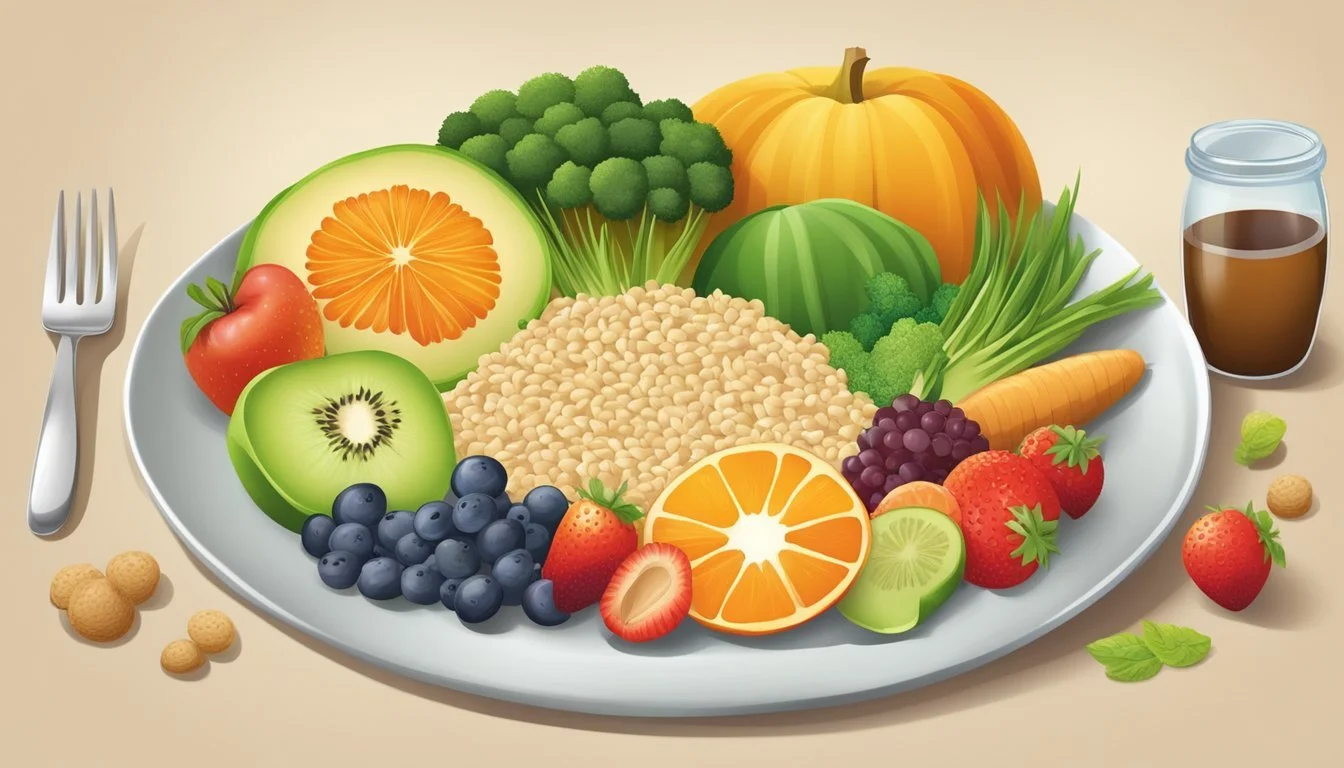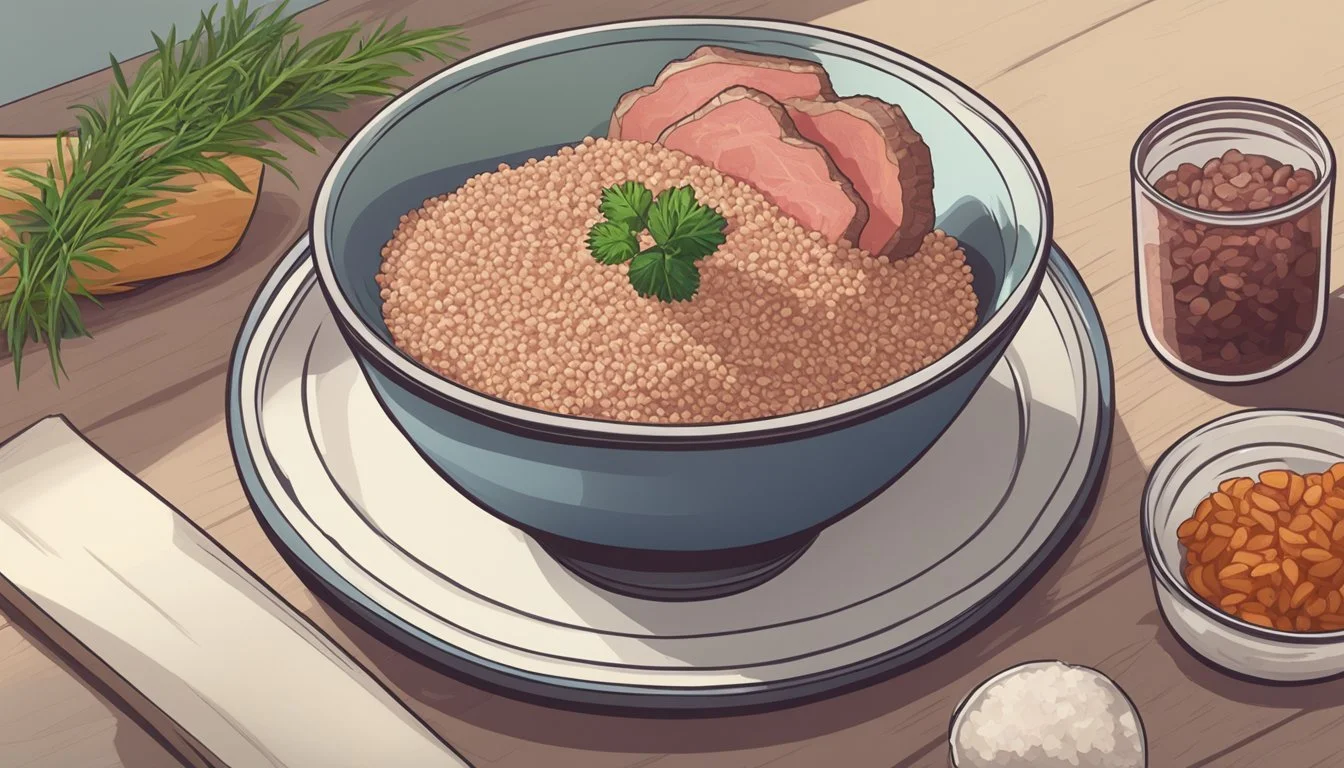Psyllium Husk Carnivore Diet
Integrating Fiber for Digestive Health
Psyllium husk is a form of soluble fiber sourced from the seeds of the Plantago ovata plant. Often utilized as a dietary supplement, it is recognized for its ability to form a gel-like substance when combined with water, which aids in digestion and regular bowel movements. In the context of a carnivore diet, which exclusively includes animal products and excludes plant-based foods, the role of psyllium husk becomes a point of debate. Adherents to the carnivore diet eliminate traditional sources of fiber, focusing on protein and fat for their nutritional needs.
Nutritional approaches like the carnivore diet challenge conventional dietary habits that typically include a variety of plant-based fibers. Psyllium husk presents a curious case for those following a zero-carb or carnivore lifestyle, as it may seem counterintuitive to consume a plant-derived product. However, individuals may consider incorporating psyllium husk for its potential to relieve constipation, a complication some experience when lacking dietary fiber.
The intersection of psyllium husk and the carnivore diet raises questions about the necessity of fiber in a diet void of plant matter and the ability to meet nutritional requirements. While some argue in favor of the digestive benefits of psyllium husk, others caution against its inclusion due to potential gut irritation and departure from a strict carnivore dietary framework. It underscores the importance of understanding how different nutritional components function within various dietary paradigms.
Understanding Psyllium Husk
Psyllium husk, a form of soluble fiber derived from the seeds of the Plantago ovata plant, plays a particular role in dietary applications including its use as a supplement in various forms.
Dietary Profile and Composition
Psyllium is composed mainly of hemicellulose, which is a complex carbohydrate with a high water solubility. This component primarily forms the soluble fiber content of the husk. Psyllium husk can be sourced as whole psyllium husk or in a powdered form, and also as a component in capsules for supplement use. Its carbohydrate content, while minimal, is almost entirely fiber, making it low in usable carbohydrates.
Key Points of Nutritional Profile:
High in soluble fiber
Low in digestible carbohydrates
Available as whole husks, powder, or capsules
Psyllium as a Soluble Fiber
When ingested, psyllium works as a soluble fiber that can absorb water and become a viscous compound that benefits bowel health. This attribute allows it to aid in moisture retention in baked goods when used as an ingredient, and it helps to make stools easier to pass when consumed as part of a diet. Given that it is not digested, it passes through the gut relatively intact, providing bulk to stools and potentially aiding with constipation.
Functional Benefits:
Can absorb water to form a gel-like substance
Aids in maintaining moisture in baked products
May alleviate constipation by increasing stool bulk
Carnivore Diet Fundamentals
The carnivore diet centers around the consumption of purely animal products and excludes plant-based foods. This diet stipulates that humans are best adapted to a diet consisting solely of meat.
Key Characteristics of Carnivore Diet
The carnivore diet, at its core, is an all-meat diet that focuses on simplicity and nutrient density. Individuals on this diet consume:
Beef: High in protein and essential nutrients like iron and vitamin B12.
Chicken: Offers a leaner protein source and various vitamins and minerals.
Fish: Provides omega-3 fatty acids important for heart and brain health.
Dairy: Selected dairy products like cheese and butter are included for fat content.
Animal Products: Eggs are a common inclusion for their protein and nutrient profile.
This diet aims to eliminate carbohydrates, focusing on animal products as the singular source of nutrition.
Nutrient Intake on Carnivore Diet
Protein and fats are the primary macronutrients on the carnivore diet. Animal products supply all essential amino acids and fatty acids required for human health. Here's a breakdown:
Protein: Adequate levels are achieved through meats such as beef, chicken, and fish, which are staples of the diet.
Fats: Sourced from meats and certain dairy products, providing energy and aiding in the absorption of fat-soluble vitamins.
Vitamins and Minerals: Liver, a superfood on the carnivore diet, is rich in vitamin A and other vital nutrients. The diet's focus on meat also supplies zinc, iron, and selenium.
Emphasis is placed on consuming enough fat to fuel the body in the absence of carbohydrates.
Interplay of Psyllium Husk and Carnivore Diet
The carnivore diet excludes dietary fiber, while psyllium husk serves as a fiber supplement which may impact digestive health. This section examines how psyllium husk might be incorporated and its potential benefits for individuals on a carnivore diet.
Supplementing Fiber in Carnivore Diet
A strict carnivore diet eliminates plant-based foods, effectively reducing dietary fiber intake to zero. Fiber intake is commonly associated with various benefits for the digestive system, including facilitating bowel movements and ensuring gut health. Supplementing with psyllium husk can reintroduce a source of soluble fiber, which is known to absorb water and can help form stool, potentially mitigating constipation – a common concern for some individuals new to the carnivore lifestyle.
Considerations:
Adequate fluid intake is crucial when consuming psyllium husk to prevent worsening constipation.
Psyllium supplementation should be approached with caution, as its necessity on a carnivore diet is debated and individual responses may vary.
I highly recommend purchasing fiber supplement online for a convenient shopping experience!
Potential Benefits of Psyllium Husk
Psyllium husk's primary role is to aid in the maintenance of regular bowel movements by adding bulk to the stool. This bulk can make the stools softer and easier to pass, which might be beneficial for those experiencing constipation on the carnivore diet. Furthermore, psyllium husk is a prebiotic, supporting the health of gut bacteria, which are essential for a well-functioning digestive system.
Benefits:
Constipation relief: By absorbing water in the gut, psyllium husk expands, easing the passage of stool.
Gut bacteria support: While the carnivore diet doesn't directly provide prebiotics, psyllium husk can support beneficial gut bacteria growth.
Health Impact
The health impact of psyllium husk on a carnivore diet is notable primarily for its potential benefits related to cholesterol management, blood sugar regulation, and digestive regularity. The use of psyllium husk can complement the carnivore diet by addressing certain dietary fiber needs.
Effects on Cholesterol and Heart Health
Psyllium husk is recognized for its ability to aid in lowering LDL cholesterol levels, thereby supporting heart health. When incorporated into one's diet, psyllium husk forms a gel-like substance that can bind to cholesterol and help remove it from the body. Studies suggest that regular intake of psyllium husk may lead to significant reductions in both total cholesterol and LDL cholesterol, which are important markers for cardiovascular risk.
LDL Cholesterol Reduction: Regular consumption of psyllium husk may lead to a decrease in LDL cholesterol, coined as the "bad" cholesterol.
Influence on Blood Sugar and Diabetes
For individuals managing diabetes, psyllium husk can play a crucial role in blood sugar control. The fiber in psyllium husk can slow glucose absorption, resulting in more stable blood sugar levels. The gel formed by psyllium husk when mixed with water also slows down digestion, which helps prevent large spikes in blood sugar after meals—a significant consideration for those with diabetes.
Blood Sugar Stability: Psyllium husk's gel-forming fibers have been shown to slow down food processing in the gut, leading to more gradual blood sugar rise.
Digestive Health and Regularity
The carnivore diet typically lacks dietary fiber, which is vital for digestion and bowel regularity. Psyllium husk serves as a source of soluble fiber that can help prevent issues such as constipation, bloating, gas, and nausea. It also has a prebiotic effect, promoting healthy gut bacteria which is beneficial for those suffering from irritable bowel syndrome (IBS).
Constipation Alleviation: Psyllium husk can alleviate constipation by increasing stool bulk and facilitating its passage through the colon.
IBS Symptoms Management: The fiber in psyllium husk may help manage symptoms of IBS, reducing occurrences of bloating and irregular bowel movements.
Dietary Implementation
When incorporating psyllium husk into a carnivore diet, one should understand how to integrate it into meals properly and know the safe consumption practices to maximize the benefits while maintaining adherence to the diet principles.
Integrating Psyllium Husk into Meals
Psyllium husk can be incorporated into various carnivore-friendly dishes to increase fiber intake without compromising the diet's focus on animal products. Individuals may choose to add psyllium husk to homemade breads or as a binding agent in meatloaf or meatballs, where it acts as a gluten-free substitute for traditional breadcrumbs. Psyllium husk's ability to mimic gluten's textural properties makes it a suitable addition for individuals adhering to a gluten-free lifestyle.
Baking: To create gluten-free bread, mix a small amount of psyllium husk with ingredients like eggs and dairy.
Example Recipe: For a basic carnivore bread, one might combine 1 tablespoon of psyllium husk with 4 eggs and ½ cup of cream cheese.
Binding Agent: To ensure meat dishes retain moisture and shape, add a teaspoon of psyllium husk per pound of ground meat, mixing thoroughly.
Grocery stores or health food stores are reliable sources for purchasing psyllium husk. Additionally, it is important to look for pure psyllium husk without added sugar, salt, or flavors that could go against the principles of the diet.
Make your life easier by ordering psyllium husk online; it's just a few clicks away!
Considerations for Safe Consumption
Consuming psyllium husk is generally safe when one follows certain guidelines. It is essential to accompany the fiber with an adequate intake of water, especially when consuming it in dry form, to prevent any digestive discomfort.
Hydration: Drink at least 250 ml (8 ounces) of water for every teaspoon of psyllium husk to facilitate the formation of a gel-like substance and promote safe digestion.
Alcohol: Avoid consuming alcohol when taking psyllium husk, as alcohol can lead to dehydration, countering the hydrating effects necessary for safe psyllium husk consumption.
Individuals are advised to start with a small amount of psyllium husk to assess tolerance and gradually increase according to their dietary needs. Always consult a healthcare provider before introducing any new supplement to one's diet to ensure it aligns with personal health goals and dietary restrictions.
Challenges and Considerations
Incorporating psyllium husk into a carnivore diet raises several key considerations. These include managing common side effects, being aware of interactions with medications, and understanding the dietary limitations inherent in a carnivore eating pattern.
Common Side Effects
One of the primary challenges when adding psyllium husk to a carnivore diet is the potential for side effects, such as irritation or inflammation in the digestive tract. This may lead to uncomfortable digestive symptoms, which contradicts the goal of maintaining a healthy and efficient gut.
Side Effects:
Digestive irritation
Inflammation
Harder stool formation
Psyllium Husk Interactions with Medication
Psyllium husk, being a fiber supplement, can interact with certain medications. It's important to consider how it may affect the absorption of drugs. Individuals should consult with healthcare providers, especially if they are on medications for conditions such as diabetes, where the timing of medication is crucial.
Potential Medication Interaction Risks:
Altered drug absorption
Impact on blood glucose levels for diabetics
Limitations in Carnivore Diet
A strict carnivore diet typically excludes plant-derived substances, including fiber like psyllium husk. Adherents therefore need to be cognizant that psyllium husk is non-animal-based, and its introduction could potentially contradict the diet's philosophy. Furthermore, it's important to recognize that despite its nutrient density, a carnivore diet may inherently lack certain micronutrients, such as Vitamin A, and a balance should be sought through inclusion of nutrient-rich animal products.
Dietary Limitations:
Lack of fiber and certain micronutrients
Potential need for supplementation with vitamin-rich organ meats like liver
Nutritional Advantages
Incorporating psyllium husk into a carnivore diet can offer significant nutritional advantages, particularly in the areas of weight management and digestive health. This natural fiber supplement can aid in appetite control and act as a prebiotic, fostering a healthier gut environment.
Weight Management and Appetite Control
Psyllium husk is recognized for its role in weight management. Due to its high soluble fiber content, it can promote a feeling of fullness, thereby reducing overall appetite. Clinical studies have shown that psyllium may help individuals lose weight by increasing satiety levels and decreasing feelings of hunger.
Weight loss: Individuals supplementing with psyllium lost more weight compared to those in a placebo group.
Appetite: The gel-forming properties of psyllium fiber slow digestion, helping to maintain a steady feeling of fullness.
Gut Health and Prebiotic Effects
Psyllium husk contributes to gut health by serving as an effective prebiotic. Prebiotics are components in food that induce the growth or activity of beneficial microorganisms such as bacteria and fungi.
Prebiotic: Psyllium is not digested in the upper gastrointestinal tract and thus reaches the colon intact, where it can promote the growth of healthy gut bacteria like butyrate-producers.
Butyrate: The fermentation of psyllium by gut bacteria results in the production of short-chain fatty acids like butyrate, which is crucial for colon health and has systemic anti-inflammatory effects.
By enhancing gut microbiota and fostering the production of health-promoting compounds, psyllium husk can support a solid foundation for digestive health benefits within a carnivore diet framework.
Carnivore Diet in Different Contexts
This section explores the considerations for those incorporating psyllium husk into a carnivore diet when following a keto or low-carb lifestyle, and the adjustments that might be necessary for individuals with specific health conditions.
Implementing Psyllium Husk in Keto and Low-Carb Diets
In a keto diet, the primary goal is to enter a state of ketosis, where the body uses fat as its main energy source instead of carbohydrates. Individuals on a low-carb diet similarly aim to reduce carbohydrate intake, albeit not to the extent required for ketosis. They might consider psyllium husk as a fiber supplement, given its minimal impact on net carbohydrates. Here's why:
Psyllium husk is almost entirely fiber, which the body does not digest. This means it contributes very little in the way of net carbohydrates, making it keto-friendly.
It can aid in regular bowel movements, a common issue in low-carb diets due to decreased fiber intake.
However, it's important for users to account for:
Caloric intake: While psyllium husk is low in calories, they are not zero.
Net carbs: Even the minimal carbohydrates in psyllium husk should be counted in a strict keto regime.
Adjustments for Health Conditions
Individual health conditions can necessitate tailored adjustments to the carnivore diet. Those with digestive system conditions will need to weigh the potential benefits of psyllium husk against its potential to irritate the gut.
For example:
In conditions such as irritable bowel syndrome (IBS), the added bulk from psyllium husk might ease symptoms for some, but cause exacerbation for others.
When introducing psyllium husk into the diet, one should start with a small amount and monitor the body's reactions closely, adjusting as needed:
Begin with a low dose, such as a teaspoon, and observe any changes or improvements.
Ensure to drink plenty of water, as psyllium absorbs liquid and can otherwise lead to constipation.
Consultation with a healthcare provider is recommended to personalize dietary fiber intake and avoid unintended consequences on health.











